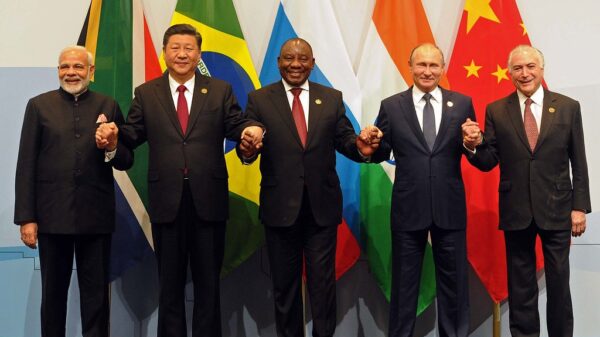Like the plight of the Tiger herself, Mansur Ali Khan Pataudi was the last of a dying breed. He was a prince, a cricketer, a celebrity, and a scion of an old Indian-Afghan family (the Ali Khans) tracing their origins back to Faiz Talab Khan, an ethnic Pashtun from Kandahar, Afghanistan, who became the first Nawab of the Pataudi State in 1804. His nickname, ‘Tiger’ came from his uncle, who used to comment on his tendency to crawl around on all fours as a child.
His father, Ifthikar Ali Khan Pataudi, was his inspiration throughout his life. He had played for England, in the days of Empire, during the Bodyline Tour 1932-1933, clashing with Captain Douglas Jardine on numerous occasions over his less than gracious tactics. Jardine once called him, “a conscientious objector’. Ifthikar Ali Khan died suddenly on his son’s 11th birthday, of a heart attack while playing Polo. He remains the only man to play Test Cricket for both England and India.Â
Mansur Ali Khan (who will be referred to as Ali Khan from now on) was born in Bhopal, Madhya Pradesh in 1941. In 1952 he became the 9th and last Nawab of Pataudi (an Indian princely title), after the 26th Amendment to the Indian Constitution was passed by the Government of Indira Gandhi. He had a privileged upbringing. He was brought up in a Palace, and attended, Lockers Park Prep School where he was coached by Frank Wooley, Winchester College, before going up to Balliol College, Oxford, like his father before him. In 1959 at Winchester he beat Jardine’s run total of a thousand runs by 68, which became a new school record.
He made his county debut in 1957 for Sussex with whom he spent three seasons. His career and cricketing style were maturing well, but was cut brutally short in 1961 while he was travelling in Hove. He was in a serious car crash which cost him his vision in his right eye. His career and averages suffered as a result, but learned to play with one eye. His trick was, when he saw two balls, he would play the shot against the ball which he would see from beneath the other ball.Â
Nevertheless, Ali Khan did much to perpetuate and solidify the Pataudi family’s cricketing legacy. He developed his skills as a right-handed batsman and a right-arm medium pace bowler and became arguably India’s most successful Test Captain. He captained India for the first time at the age of 21. His captaincy lasted for 40 tests, out of a total of 46 in which he played, and during which he led India to her first Test victory against New Zealand in 1968. In total he was responsible for 9 of India’s Victories between 1961 and 1975. His Test average of 34.91, and a total of 15,425 runs was good, considering his poor eyesight, but unremarkable. His truest legacy lies in his inspirational captaincy.Â
Ali Khan had been brought up in the genteel semi-Imperial belief that the British Raj was a part of India’s nobility. He therefore modelled himself on the image of royalty inspired by the British Aristocracy. He learned to be calm, gentle, polite, well mannered, and never to reveal his emotions. These traits spilled into his style as a batsman and a captain. He was also very modest about his own ability, but as captain he worked to ensure that his team realised their maximum potential by making them appreciate their own worth.Â
“Look. You are not playing for Delhi, Punjab, Madras, Calcutta or Bombay; you are playing for India. You are Indian.†Was his famous rallying cry to his more young and inexperienced players.Â
As captain he is also most famous for playing to India’s strengths as a team by playing 3 spinners in a test Team. In the so called, ‘Spin Revolution’ Pataudi developed the precedent of playing spinners in a test team. The Indian Spin Quartet played a combined 231 tests for India between 1962 and 1983 and consisted of, Erapalli Prasanna and Srinivas Venkataraghavan (both off spinners), Bhagwat Chandrasekhar (a leg spinner), and Bishen Singh Bedi (a left-arm spinner). They were instrumental in securing Indian Victories throughout the 1960s and 1970s under Ali Khan’s leadership. The only game they ever played together in an Indian Test XI was their first game in 1967 in Birmingham against England. In that game, Prasanna and Chandrasekhar claimed a total of 13 wickets between them. The Spin Revolution remains Ali Khan’s enduring legacy to cricket.Â
Ali Khan was married in 1969 to Indian film actress Sharmilla Tagore. His children include Saif Ali Khan, the Bollywood Superstar. In his personal life, he was generally very happy, particularly with the wife whom he loved. In 2007, The Marylebone Cricket Club instituted the Pataudi Trophy to recognise the contributions of both Nawabs of Pataudi which is contested by England and India. Before his death he was on the governing council of the Indian Premier League (IPL) but resigned after the sacking of Lalit Modi, founder of the IPL. His character remained as regal, dignified and untarnished throughout his life until his death in 2011 of a lung disease.Â
At his death an Indian royal tradition steeped in a mysterious and mesmerising history died with him. However, he bequeathed to cricket an Indian National cricket Team which learned to evolve and mature out of its Imperial connections and traditions into a passionate and formidable group of players. Neville Cardus summed up his legacy in a deft tribute;
“There was suppleness and lithe grace which concealed power, as silkiness of skin conceals the voracity of strength in a beautiful animal of the jungle.â€
Mansur Ali Khan Pataudi would have been 80 on January 5th 2021.Â

















